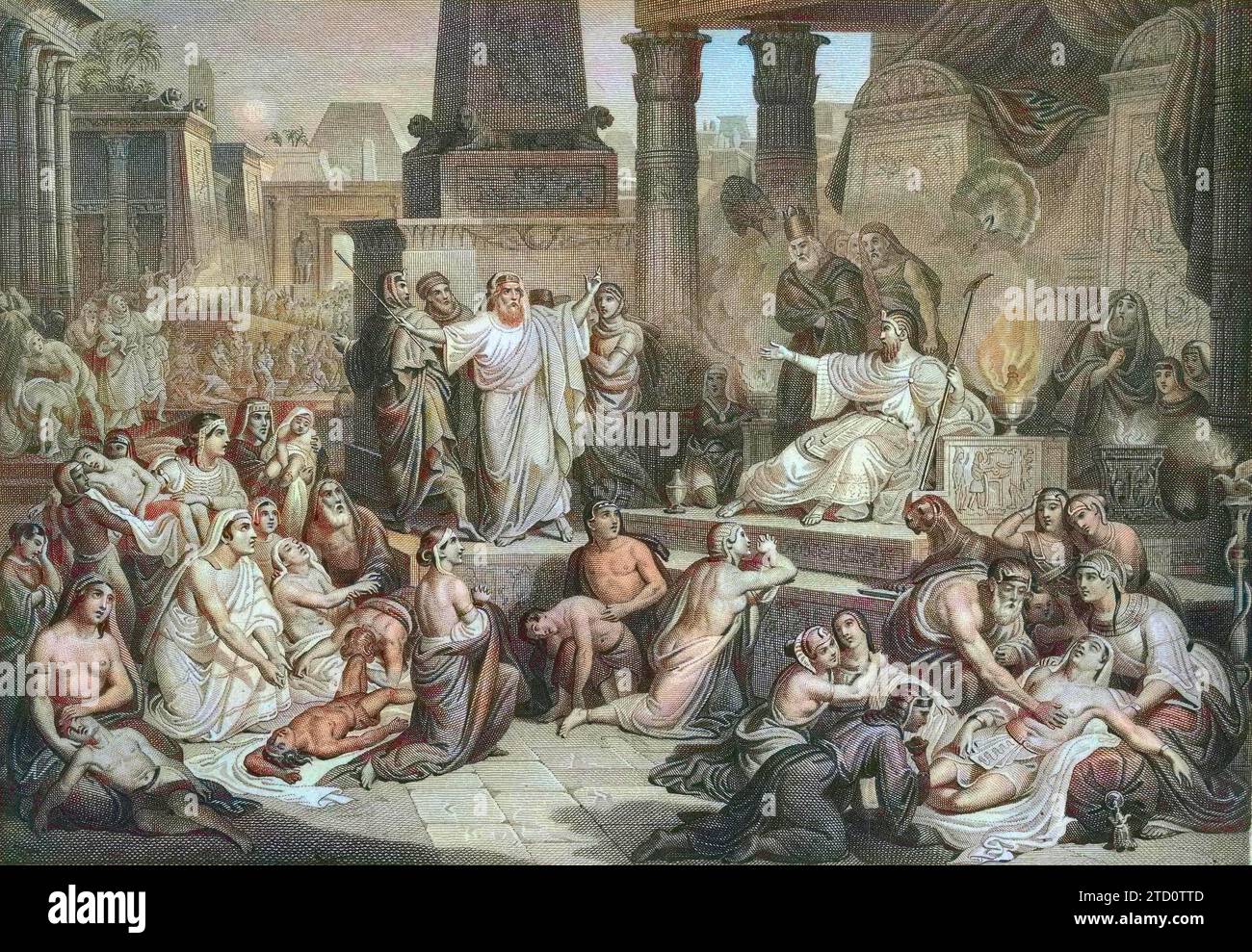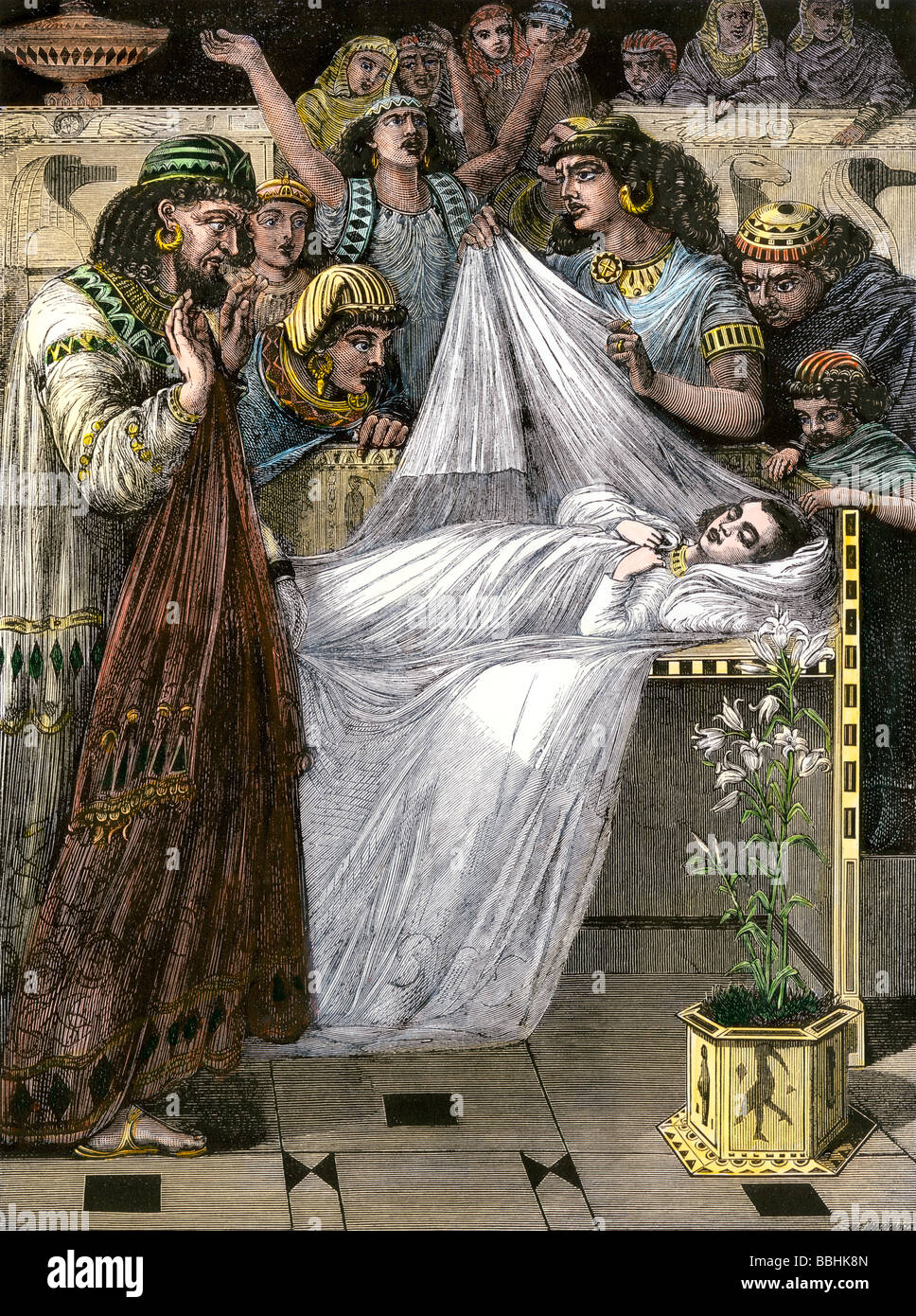Death Of Egypt 长子之死:埃及十灾中的最后一灾(石版)。
We did not find results for: This plague is recorded in the book of exodus, specifically in chapters 11 and 12, and serves as the final divine act that compels pharaoh to release the israelites from Check spelling or type a new query.
Book of Exodus. The Plagues of Egypt. Tenth plague death of Stock
According to ancient egypt online, once cleopatra decided that she did not want to be paraded through the streets of rome before a grisly, public execution, she began studying the effects of different poisons while ordering the design and construction of her own mausoleum. The tenth plague, also known as the death of the firstborn, is a pivotal event in the biblical narrative of the exodus, marking the climax of god's judgments against egypt. Anubis was heavily worshipped because, despite modern beliefs, he gave the people hope.
People marveled in the guarantee that their body would be respected at death, their soul would be protected and justly judged.
[9] anubis had male priests who sported wood masks with the god's likeness when performing rituals. After that he will let you go. When he does, he will be certain to force all of you out of here. Now announce to the people ⌞of israel⌟ that each man and woman must ask the egyptians for silver and gold jewelry.” the lord made the egyptians kind to the people
In ancient egypt, the pursuit of answers to this profound mystery led to the development of rich rituals and beliefs surrounding death and the afterlife. From the elaborate funeral ceremonies of the pharaohs to the meticulous preparations made by the general population, the ancient egyptians’ practices provide us with fascinating insights Tutankhamun and his queen, ankhesenamun tutankhamun was born in the reign of akhenaten, during the amarna period of the late eighteenth dynasty of egypt.his original name was tutankhaten or tutankhuaten, meaning living image of aten, [c] reflecting the shift in ancient egyptian religion known as atenism which characterized akhenaten's reign. The first plague saw the river nile turned to blood, causing the death of the fish.

8:2 and if thou refuse to let them go, behold, i will smite all thy borders with frogs:
8:3 and the river shall bring forth frogs abundantly, which shall go up and come into thine house, and into thy bedchamber, and upon thy bed, and into the house of thy servants, and upon thy people, and into thine ovens, and The culture was obsessed with living life to its fullest. The mortuary rituals so carefully observed were intended not to glorify death but to celebrate life and ensure it continued. Still, relatively few depictions in art emerged compared to other religious themes until the 19th century, when the plagues became more common subjects, with
Two ideas that prevailed in ancient egypt came to exert great influence on the concept of death in other cultures. The first was the notion, epitomized in the osirian myth, of a dying and rising saviour god who could confer on devotees the gift of immortality; This afterlife was first sought by the pharaohs and then by millions of ordinary people. This plague on the firstborn sons of egypt was the tenth and final plague god sent on the nation of egypt, and it was the one that finally ended the brutal enslavement of the people of israel.

The other plagues were terrible (see exodus chapters 7—10), but the tenth plague was particularly harsh.
How was it just for god to cause the death of Crimes like rape resulted in the death penalty. Even theft could result in death. But it's the method of capital punishment that makes egypt stand out.
To paint a lesson about order, justice, and law, the death sentence in ancient egypt manifested in particularly nasty, painful ways. Nothing prepared egypt for the eclipse of royal power and poverty that came after pepy ii (neferkare). The concept of the afterlife in ancient egypt. In ancient egypt, the concept of the afterlife held great significance.

The egyptians believed in a physical afterlife, where the preservation of the body was crucial.
This belief was deeply intertwined with their practical and cultural beliefs surrounding death and the journey to the afterlife. Two ideas that prevailed in ancient egypt came to exert great influence on the concept of death in other cultures. The first was the notion, epitomized in the osirian myth, of a dying and rising saviour god who could confer on devotees the gift of immortality; This afterlife was first sought by the pharaohs and then by millions of ordinary people.
She is famed for her savvy political alliances with julius caesar and mark antony. The death of the firstborn is a pivotal event in the biblical narrative of the exodus, marking the final and most severe of the ten plagues that god inflicted upon egypt. Still, relatively few depictions in art emerged compared to other religious themes until the 19th century, when the plagues became more common subjects, with
_Alma_Tadema_-_Death_of_the_Firstborn_the_last_of_the_Ten_Plagues_of_Egypt_(litho)_-_(MeisterDrucke-1062384).jpg)